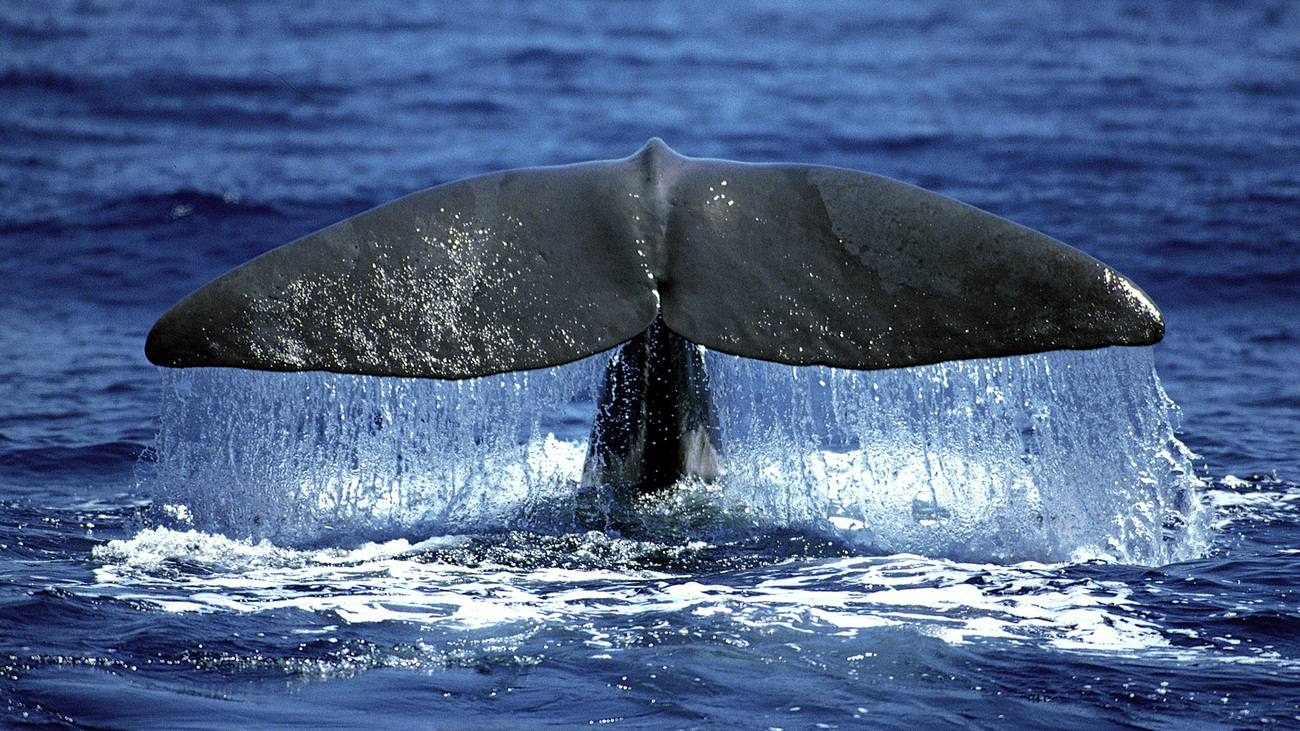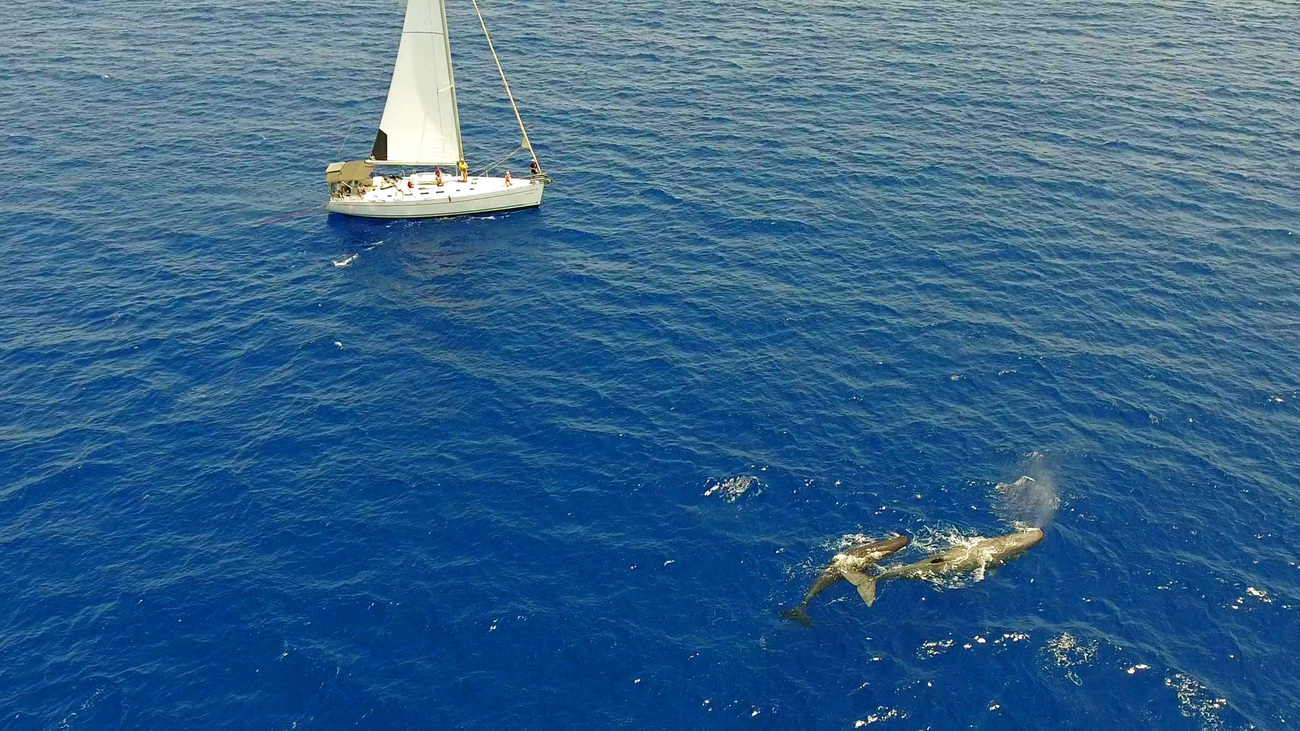Ilaria Di Silvestre
A strong European Oceans Pact: IFAW’s call for action
A strong European Oceans Pact: IFAW’s call for action
The European Commission has launched a call for evidence to shape the European Oceans Pact, a political initiative that aims to protect ocean health, promote sustainable industries, and strengthen governance. With the final version expected to be presented at the 3rd UN Ocean Conference in June 2025, this pact is a major opportunity for the European Union to set a clear, ambitious vision for the future of our oceans. IFAW has responded to the consultation and highlighted urgent issues that must be tackled to ensure a healthy, resilient, and productive ocean.

Tackling underwater noise pollution
Noise pollution from ships disrupts marine life as it interferes with their communication, navigation, and survival. IFAW urges the EU to introduce legally binding measures to reduce underwater noise, including speed limits for vessels. Scientific studies show that slightly reducing ship speeds can cut noise pollution by up to 40% while also lowering greenhouse gas emissions and reducing whale collisions.
IFAW, supported by almost a quarter of a million citizens, several shipping companies, and ports, advocates for the adoption of Blue Speeds, a policy that promotes speed reduction as a cost-effective and immediate solution to mitigate underwater noise. Lower speeds also result in lower fuel consumption, reducing overall emissions. IFAW urges the EU to integrate this measure into marine regulations and support initiatives that encourage shipping companies to comply with voluntary and mandatory speed limits in ecologically sensitive areas.
Preventing vessel strikes
Many whales and other cetaceans die each year from collisions with ships. In Europe, the risk is especially high in areas like the Mediterranean and the Bay of Biscay, where shipping routes cross critical whale habitats.
The Blue Speeds approach helps lower the risk of fatal vessel strikes by 50%. In addition, IFAW recommends implementing dynamic management measures, including rerouting busy shipping lanes away from critical whale habitats and enacting mandatory speed restrictions in high-risk zones. Improved detection systems and real-time data-sharing with vessels would also help prevent collisions. The adoption of best practices outlined by the International Maritime Organization (IMO) through a dedicated EU Action Plan would provide additional protections for marine life.
Reducing bycatch
Thousands of marine animals, including dolphins and porpoises, are accidentally caught in fishing gear every year. Despite existing EU laws, many countries have failed to implement effective conservation measures. IFAW supports stricter enforcement and incentive-based solutions to help fishers transition to sustainable practices.
IFAW suggests that a combination of time-area fishing closures, the use of alternative fishing gear, and incentive-based programmes will significantly reduce bycatch. By rewarding fishers for using dolphin-safe nets or adopting sustainable fishing techniques, the EU can encourage industry-wide change. Additionally, improved monitoring and data collection are crucial for assessing the effectiveness of bycatch reduction measures.
Strengthening international cooperation
Oceans do not have borders, and neither should conservation efforts. IFAW stresses the need for stronger collaboration between EU member states and international bodies to protect marine biodiversity. This includes support for the implementation of the UN’s High Seas Treaty (also known as the BBNJ Agreement), which would safeguard marine life in the waters beyond national jurisdiction.
To ensure effective protection of marine ecosystems, IFAW calls for the creation of a dedicated EU coordinating body to align policies with the BBNJ. This would help coordinate efforts to establish marine protected areas (MPAs) in the High Seas and ensure that existing policies are enforced at the international level.

A sustainable future for Europe’s seas
Ocean health and economic prosperity go hand in hand. The long-term restoration and conservation of the marine environment are vital to a competitive future. To achieve this, IFAW recommends the creation of an EU Ocean Fund.
This fund would provide long-term financial support for ocean conservation, sustainable fisheries, and marine habitat restoration. It should also replace environmentally harmful subsidies and invest in innovative solutions for reducing marine pollution, promoting sustainable shipping, and protecting marine biodiversity.
Now is the time for action
The European Oceans Pact has the potential to make a real difference, but only if it is ambitious, enforceable, and backed by strong political will. IFAW is calling on EU institutions to seize this opportunity and commit to real, lasting change. Now is the time to demand a plan that truly protects our oceans: for marine life, for coastal communities, and for future generations.
Read our full submission to the public consultation on the Oceans Pact here >>
Related content
Our work can’t get done without you. Please give what you can to help animals thrive.